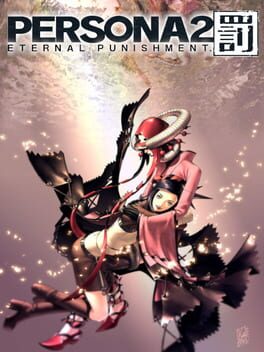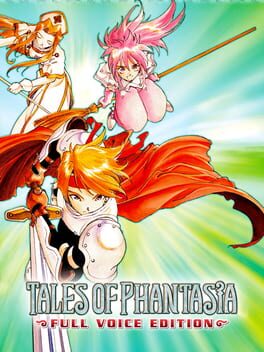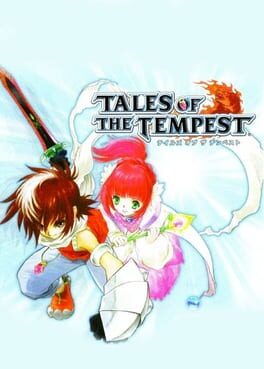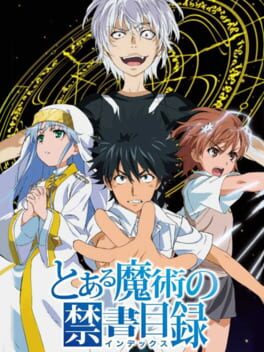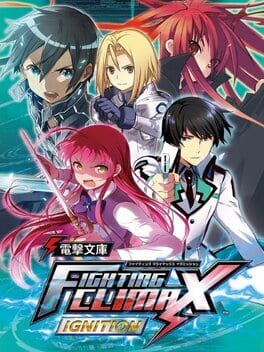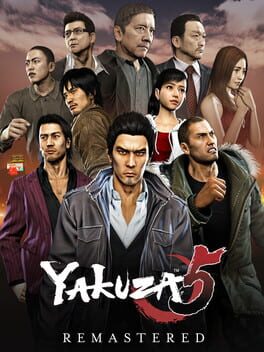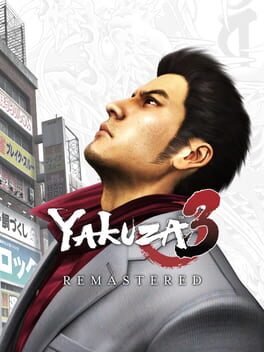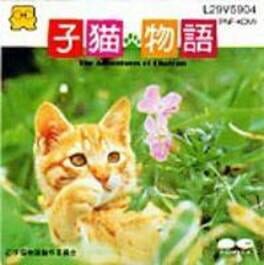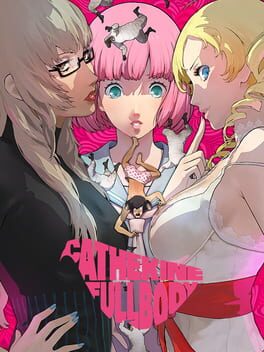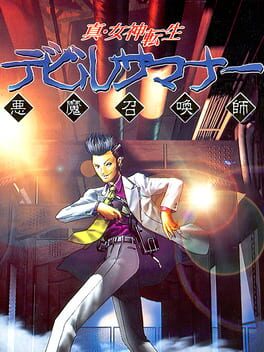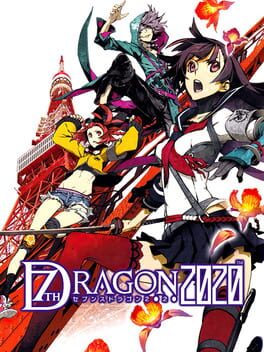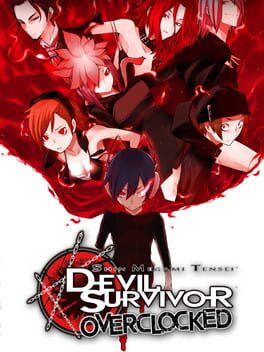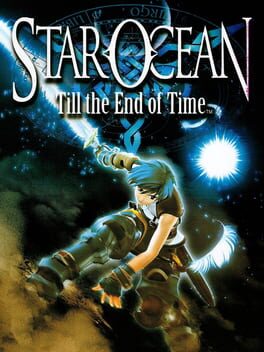Koopers
30 Reviews liked by Koopers
Eternal Punishment exhibits a sublimely mature, dense, and compelling narrative that pairs flawlessly with it's cast of incredibly well-fleshed out characters that each carry their own near-insurmountable amount of baggage. The chemistry between these characters was engrossing and grounded in a way that very few works in this medium have achieved (at least in my experience) and I found myself completely absorbed as a result. In terms of gameplay, just about everything I enjoyed in Innocent Sin has been escalated and improved upon, while nearly all of the issues I had (primarily the speed of combat and the lack of difficulty) have been addressed and finely tuned with the only notable outlier being that I still find the demon negotiation and method of acquiring personas a bit too cumbersome and tedious. That being said, the only real letdown for me was Maya's transition to a silent protagonist as her uplifting sincerity in Innocent Sin was consistently a highlight of that experience. I can appreciate that the torch was passed to Tatsuya so he could become more thoroughly defined as a character this time around (which is certainly the case) but I couldn't help but yearn for a world in which these two fantastic characters can have genuine conversations with one another, even if it would require me to take more of a backseat as a player in the process.
I started going through the GBA version of this about a month ago, and then realized that I really wanted to play a different port of it on a TV, because the 4-button controls of the GBA were driving me crazy :P . Flake had brought to my attention a week or so earlier that you could play PSP games on the TV through a PSTV, so I fumbled through getting PSN cash onto my Japanese PSN account and bought the PSP remake of Tales of Phantasia on the Japanese PSN store, and boy was it ever worth it! I played through it in Japanese, on normal mode, and with only slight use of a guide to get past some of the less self-explanatory puzzles, it took me just about 36.5 hours. This is my 8th game completed in the main Tales series, so I have finally completed half of them :D
I'm unsure on if there's a translation patch available for the ROM or anything, but the PSP ports (a slight variation of this version is packed into the PSP remake of ToP's GBA sequel) are definitely the ways I'd most highly recommend playing through ToP. Fully voiced main-story dialogue really brought some emotion and life to the story that I'd really not felt in the GBA version. Quality of life features that were added after the SFC version like 8-directional movement and a lower encounter rate are also present. The music is also beautiful, as I believe it was taken from the PS1 port. The music and overworld as well as much of the battle sprites were taken from the PS1 version, with a lot of the in-town designs taken from the SFC version. However, most of the item placement is more like that of the PS1 version (from what I can tell from guides online XP). The 3D overworld is a bit hideous compared to the how pretty the 2D towns and dungeons, but it's far from a deal-breaker, as you spend far more time in towns and dungeons than in the overworld. Playing through it on a PS3 controller was way more comfortable than using the PSP or GBA controls ever would've been, and I never had any problems controlling it on the PS3.
The controls and battle system are very Tales but with some notable differences from later versions of the fairly familiar way the 2D games operate their battle system aside from the fact that only the main character can be played. The most notable differences are firstly that you cannot select your target and that "manual" control mode isn't a default control option. You just sorta need to point yourself at what enemies you're trying to fight, but the PS1's battle sprites are so big and well detailed compared to earlier versions that I never really had a problem with this. This does, however, also mean that you can't have a life-bar on any enemy unless you're actively using a Lens on them, which is annoying but not unique to this game (although it's something I would've liked to see fixed in an enhanced port like this :? ). It's also worth mentioning that even though this version still has the battles freeze while most spells are happening, the port of ToP found packed in with the remake of the sequel also on PSP allows the battles to keep moving during spells, which will likely make them move much faster but also I imagine would make them more difficult.
The semi-auto mode of control in this game has your main character running forward and back trying to automatically do doges and sprints, when mostly what it does is mean you're letting off pressure allowing the enemy to regain its composure to start attacking you back. You can only stop this by putting your character control on manual mode, but that can only be done while wearing the "Technical Ring" accessory, so you need to sacrifice an accessory slot to actually not play in a way that will kill you. There are some times where playing in semi-auto is more beneficial just because the game handles upward/aerial attacks so much better than you, but it's still a really stupid design decision. They did move the technical ring much farther forward in the game (you get it like 10-ish hours in instead of right before the end of the game), but that's another thing like how Lenses work that is just a stupid design choice from the original that really had no reason not to be updated for a modern release. The game controls just fine and the annoyances can certainly be operated around, but that doesn't negate that fact that those annoyances are still there.
The story is a bit rough, but the voice acting really helps carry it despite the fact that it feels disjointed and slightly unfinished at times. Given that the story was adapted from an unreleased book the creator had originally written, that's not to be entirely unexpected, but it's still an issue. Things like the relationships between the main party members and how sympathetic/unsympathetic the main villain may or may not be are done adequately but still feel rushed or incomplete at times, particularly the details surrounding the main villain's motivations and the party's speculations about them. Daos is far from the worst villain the series has had, and is more than serviceable even if it feels like he probably should've been given more screentime, and while the main cast are almost entirely archetypes the Tales series would come back to again and again, they're done well enough not to feel boring just as the other Tales games tend to portray them.
Verdict: Recommended. It's far from the best Tales game, but it's also very far from the worst. It shows its age and its being first in the series through annoyances in its combat system and gaps in its story, but they're far from deal-breaking. This is a fantastic port of Tales of Phantasia, but if you like retro ARPG's then this is definitely one to check out no matter what port you're playing :D
Tales of the Tempest
2006
I knew it would be bad. Everyone said it was. And yet, what is it about surefire disappointment that allures me so? I've been really getting into the Tales series, and after recently finishing Zestiria and really enjoying it despite its glaring flaws, I was feeling a little quirky. I think it's not so much that Tempest gets a lot of bad rep, but just so the fact that not many people outside of Japan played it. Anything to join an elite (but useless) club just for a small sense of trite accomplishment. Was it worth it? Well, sort of.
This is a truly fascinating game. I mean, just the fact that it manages to be a whole lot of nothing. I just finished this game, and I honestly couldn't even begin to properly summarize what happened despite its ridiculously short length of only 10 hours. The most I got from the story is... SPOILERS: MC's dad is a furry.
True story, that is. Outside of the generally uninteresting story, the characters rarely get a chance to develop, especially with the absence of skits, which is a crying shame in a Tales title. Some of the older titles excluded, characters are a big part of what makes the series so enjoyable, and skits really enhance that aspect. Tempest sort of has a replacement in the form of "campfire breaks" that only really happen at specific moments in the story, and a few optional ones when using a tent at certain points, but none of these are very interesting, either.
Story is a bust. Characters are also a bust. Well, how about gameplay? It's surprisingly OK! And by that I mean it's not terrible enough to put me to sleep at least. It's a fairly simple battle system, but it gets the job done, I feel. The main issue here is the godawful encounter rate that makes getting from Point A to Point B a slog half the time. Oh, and the whole game save for the final boss is extremely easy. Just have fun dealing with the stupid AI which refuses to heal you half the time you need it.
All around, everything about this game is kinda stinky. Even the UI for the menus is terrible. Clunky and unintuitive navigation makes switching out gear more tedious than it needs to be. Still, as I said earlier, finishing this was sort of worth it. It was kind of cozy to play. Brain off. Right thumb mashing that attack button. Laughing at the jank and the insipid story; especially the two hilariously dumb plot twists that occur later in the game. The game was short enough that it didn't overstay its welcome (too much), and it was honestly pretty cool to check out this obscure piece of Tales history in the spirit of getting more into the series. It's not an offensively bad game, just boring, and definitely not worthy of being branded as a "Tales of" title. After all the negative reception it garnered, it makes sense why they decided to reclassify this as a spin-off.
This is a truly fascinating game. I mean, just the fact that it manages to be a whole lot of nothing. I just finished this game, and I honestly couldn't even begin to properly summarize what happened despite its ridiculously short length of only 10 hours. The most I got from the story is... SPOILERS: MC's dad is a furry.
True story, that is. Outside of the generally uninteresting story, the characters rarely get a chance to develop, especially with the absence of skits, which is a crying shame in a Tales title. Some of the older titles excluded, characters are a big part of what makes the series so enjoyable, and skits really enhance that aspect. Tempest sort of has a replacement in the form of "campfire breaks" that only really happen at specific moments in the story, and a few optional ones when using a tent at certain points, but none of these are very interesting, either.
Story is a bust. Characters are also a bust. Well, how about gameplay? It's surprisingly OK! And by that I mean it's not terrible enough to put me to sleep at least. It's a fairly simple battle system, but it gets the job done, I feel. The main issue here is the godawful encounter rate that makes getting from Point A to Point B a slog half the time. Oh, and the whole game save for the final boss is extremely easy. Just have fun dealing with the stupid AI which refuses to heal you half the time you need it.
All around, everything about this game is kinda stinky. Even the UI for the menus is terrible. Clunky and unintuitive navigation makes switching out gear more tedious than it needs to be. Still, as I said earlier, finishing this was sort of worth it. It was kind of cozy to play. Brain off. Right thumb mashing that attack button. Laughing at the jank and the insipid story; especially the two hilariously dumb plot twists that occur later in the game. The game was short enough that it didn't overstay its welcome (too much), and it was honestly pretty cool to check out this obscure piece of Tales history in the spirit of getting more into the series. It's not an offensively bad game, just boring, and definitely not worthy of being branded as a "Tales of" title. After all the negative reception it garnered, it makes sense why they decided to reclassify this as a spin-off.
Signalis
2022
Yakuza 5 Remastered
2019
Masterpiece.
I loved everything about this game. All the protagonists in this game are great. All of their stories are great. (had issues with this in Yakuza 4) All the many areas are great.
This game gave each of the protagonists a side job that has its own set of story and missions. Loved all 4 (Akiyama doesn't get one cause I guess he shares a chapter with Haruka) and hope they bring this back in a future game.
I don't really have any negatives. I guess the final substory sucked if I had to go looking for any problems I had with this game.
I had so much fun with this game that it has me thinking it might be a top 10 all time game for me.
Hard to recommend if someone hasn't played 1-4 though! Go play em all!
I loved everything about this game. All the protagonists in this game are great. All of their stories are great. (had issues with this in Yakuza 4) All the many areas are great.
This game gave each of the protagonists a side job that has its own set of story and missions. Loved all 4 (Akiyama doesn't get one cause I guess he shares a chapter with Haruka) and hope they bring this back in a future game.
I don't really have any negatives. I guess the final substory sucked if I had to go looking for any problems I had with this game.
I had so much fun with this game that it has me thinking it might be a top 10 all time game for me.
Hard to recommend if someone hasn't played 1-4 though! Go play em all!
Yakuza 3 Remastered
2018
Incredible game. Probably my favorite Yakuza gameplay so far, next to 0.
This games premise is incredible especially if you play it right after 1 and 2 like I did. Take Kiryu, a guy used to big city mobster shit who grew up an orphan, and put him in charge of an orphanage in sunny Okinawa. The change is just too perfect for his character. We get to see a side of him we already knew he had, but hadn't seen put on screen yet.
The combat is smooth, had no problems this entire game. No stupid encounters here or there like 1 did, and to a lesser extent 2. Boss fights seem long at first but aside from one particular fight where you get NO weapons and they have plenty of weapons themselves, the fights are meant to be played out in an almost deliberate, but epic way. Final boss especially.
The new area of Okinawa was fun to explore, especially with scenes involving the kids from the orphanage. Getting to know Kiryus relationship with them, and their relationships among themselves was very very interesting.
Overall a very good game. Not perfect but amazing enough to warrant a 10 rating.
This games premise is incredible especially if you play it right after 1 and 2 like I did. Take Kiryu, a guy used to big city mobster shit who grew up an orphan, and put him in charge of an orphanage in sunny Okinawa. The change is just too perfect for his character. We get to see a side of him we already knew he had, but hadn't seen put on screen yet.
The combat is smooth, had no problems this entire game. No stupid encounters here or there like 1 did, and to a lesser extent 2. Boss fights seem long at first but aside from one particular fight where you get NO weapons and they have plenty of weapons themselves, the fights are meant to be played out in an almost deliberate, but epic way. Final boss especially.
The new area of Okinawa was fun to explore, especially with scenes involving the kids from the orphanage. Getting to know Kiryus relationship with them, and their relationships among themselves was very very interesting.
Overall a very good game. Not perfect but amazing enough to warrant a 10 rating.
Catherine: Full Body
2019
My first experience with Catherine was back in 2011 when I somehow convinced my mom to allow me to rent it off of Gamefly (I was 14). At that time in my life, I had next to no idea who Atlus was and can only assume I was drawn to this game due to my eyes cartoonishly popping out of my head while I screamed 'AWOOGA' upon my viewing of the cover art. I remember being quite disappointed upon playing it and learning it was a puzzle game, quickly tossing it aside and getting back to whatever online multiplayer shooter I was into at the time.
Over the years since then, I have become increasingly familiar with Atlus' catalog to the extent that they are now responsible for a decent number of my favorite video games (Shin Megami Tensei 1, Nocturne, Persona 3, etc) and I always meant to get back to Catherine as an adult in order to finally get the proper experience. Well, that finally happened and I had a blast with it. The puzzle gameplay seems simple on the surface but is surprisingly deep and provides a huge amount of room for improvisation and personal expression. I love how you can feel yourself become increasingly competent as the game progresses despite there being no progression system in place; it's all just internalized knowledge that was accumulated through familiarizing yourself with the mechanics.
As for the story and characters, there is a lot to love here. What starts as a cautionary tale of infidelity evolves pretty quickly into a more nuanced journey focusing on how much of the human experience is dictated by expectations preconceived by others and how it can be both positive and negative to simply 'go with the flow' rather than identifying and seeking the path your heart truly yearns for. Luckily, this existential journey is not one trodden alone; I loved throwing back drinks with Vincent's buddies while they tried their best to support him and it was always fun wandering around the bar in a stupor talking to whatever new characters decided to stop by for a drink that night. The best dialogue likely comes from your fellow sheep during the nightmares though, especially those who are recurring and all have miniature arcs of their own.
When it comes to the romance/relationship aspect of the game, I definitely had a good time following along with Vincent's exploits, only occasionally getting frustrated by his complete inability to hold a conversation but this flaw serves as a pretty vital plot device so its understandable. On my playthrough of the game I achieved the True Katherine ending which certainly seems to be the canon in my mind and the one that felt the most fulfilling after viewing the rest of them online. I wouldn't blame anyone for feeling the same about several of the other endings though.
Over the years since then, I have become increasingly familiar with Atlus' catalog to the extent that they are now responsible for a decent number of my favorite video games (Shin Megami Tensei 1, Nocturne, Persona 3, etc) and I always meant to get back to Catherine as an adult in order to finally get the proper experience. Well, that finally happened and I had a blast with it. The puzzle gameplay seems simple on the surface but is surprisingly deep and provides a huge amount of room for improvisation and personal expression. I love how you can feel yourself become increasingly competent as the game progresses despite there being no progression system in place; it's all just internalized knowledge that was accumulated through familiarizing yourself with the mechanics.
As for the story and characters, there is a lot to love here. What starts as a cautionary tale of infidelity evolves pretty quickly into a more nuanced journey focusing on how much of the human experience is dictated by expectations preconceived by others and how it can be both positive and negative to simply 'go with the flow' rather than identifying and seeking the path your heart truly yearns for. Luckily, this existential journey is not one trodden alone; I loved throwing back drinks with Vincent's buddies while they tried their best to support him and it was always fun wandering around the bar in a stupor talking to whatever new characters decided to stop by for a drink that night. The best dialogue likely comes from your fellow sheep during the nightmares though, especially those who are recurring and all have miniature arcs of their own.
When it comes to the romance/relationship aspect of the game, I definitely had a good time following along with Vincent's exploits, only occasionally getting frustrated by his complete inability to hold a conversation but this flaw serves as a pretty vital plot device so its understandable. On my playthrough of the game I achieved the True Katherine ending which certainly seems to be the canon in my mind and the one that felt the most fulfilling after viewing the rest of them online. I wouldn't blame anyone for feeling the same about several of the other endings though.
I was gonna write a long review detailing everything I loved about the game but all my paragraphs got fucking deleted, so I'll keep it brief.
This was my first entry into the Devil Summoner subseries and I finished it wanting more to play. I've been putting this one off for a while, now I'm wishing I finished it sooner. Devil Summoner has a unique, immersive setting and a memorable aesthetic that can't be found in many other MegaTen games. The bond between the summoner and his demons was never really a concept that was explored in MegaTen and I'm glad they did it with this game, because it makes the demons feel more like "people" instead of being mindless slaves.
The artwork and soundtrack for this game is especially great and it feels criminal that us western plebs haven't gotten an official release for it.
Don't bother waiting for a fan translation that's never going to release when you can just play this game now. Believe me, it's a gem.
This was my first entry into the Devil Summoner subseries and I finished it wanting more to play. I've been putting this one off for a while, now I'm wishing I finished it sooner. Devil Summoner has a unique, immersive setting and a memorable aesthetic that can't be found in many other MegaTen games. The bond between the summoner and his demons was never really a concept that was explored in MegaTen and I'm glad they did it with this game, because it makes the demons feel more like "people" instead of being mindless slaves.
The artwork and soundtrack for this game is especially great and it feels criminal that us western plebs haven't gotten an official release for it.
Don't bother waiting for a fan translation that's never going to release when you can just play this game now. Believe me, it's a gem.
7th Dragon 2020
2011
Hey, this game is pretty good! And it has a fully-done fan translation as of about two years ago so it's more accessible than ever.
The combat is pretty simple as it's just your usual turn-based system. The five character classes are all pretty interesting and each have their own mechanic such as the Samurai having two 'stances' that you switch between to change what skills are available or the psychic being your main magic user and having to balance using powerful offensive spells with your heals and recovery spells. The game does offer some challenge in bosses and mini-bosses but it can be pretty easily overcome if you just grind out a handful of levels now and then (which the game makes very easy to do, because of some nice quality-of-life mechanics).
And while we're on the topic of crunchy mechanics, I want to mention the level design in the dungeons because it was pretty consistently very good. It had a lot of interesting moments where what is revealed on your map or what you're able to see with the fixed camera is taken in to account to either try and pull a fast one on your or to tease you about things that you won't get around to until later. It's all very cleverly designed (except for the ice dungeon which just felt cruel and confusing).
And, hey, speaking of design: this game is chock full of good design. I'm pretty ambivalent about the chibi character models but the portraits that go with them are all pretty cool (outside of a few that are a bit too fan-servicey for my tastes). The enemy design were all very cool, although I wish there was a larger variety of things. Seeing the same cool frog get recolored multiple times was a small bummer. The real star here, though, is the environment designs because they really went hogwild with it. Each dungeon has a unique aesthetic that is a part of Tokyo combined with some wild magic nonsense and it's always extremely cool. One of my favorite parts of the game was unlocking a new area so that I could see what it looked like.
The idea that you get to create your characters is neat but I feel like the game needed to either fully commit to more customization or not have it at all. Only getting to pick one of ten portaits, a custom name, plus one of fifteen voices (per gender) doesn't give me much to really play with in terms of making my own characters. Especially when you shove your trio of OCs into the main plot to try and fill the gaping hole where a protagonist would normally go. Since everything has to be written around that hole, it means that your characters basically don't matter. Sure, you're the ones fighting the dragons but anyone with your level of ability could do it and the game is sure to let you know that you're just one group of many that could be doing this (everyone else is either busy or dead, I guess). But also this is one of very few games that let me have a big tiddy milf as a main character so maybe that balances it all out. Who could say.
The main plot itself is pretty milquetoast. Dragons have invaded and it's up to you to unite and defeat them with the power of friendship or whatever. Also you fight god at the end. It's a lot of very common and predictable JRPG tropes shoved together and while it executes on them all pretty well it ends up with something that isn't going to stick in memory for much longer after beating it. The rest of the world, however has some very interesting bits of information that the game has seemingly no interest in actually exploring. Aliens, synthetic humans, secret goverment supersoldiers, plus more, that all get introduced on the fringes of the story but never given much actual detail of. If some of that had even been better incorporated into the plot then it could've been something more engaging but instead it's just a story that is only good enough to keep you going through 'til the end.
One thing I'd me remiss to not mention is that Hatsune Miku is in this game. You save her before she gets eaten by a dragon and then she rewards you with an alternate "Diva Mode" for the soundtrack. The developers got a bunch of vocaloid artists to make Miku remixes of the game's entire soundtrack. At first I thought that was an awesome idea but as I switched back and for between both OSTs I realized that I liked the original one better. Vocaloid music is good but the tracks in this game are just pretty mediocre vocaloid songs. Miku's character model and portrait are very cute though, so that's fun.
Finally, I need to talk about the post-game dungeon. After you roll credits, one of the aliens tells you you need to talk. So after you clean up the last few dragons it unlocks one last dungeon and each bit of progress you make in it rewards you with just a smidge more lore about the dragons and aliens and how they all got here to Earth. At first the dungeon was a neat idea - a mix of all the previous dungeons with only dragon enemies to challenge you with - but after getting halfway through it, it was just too much of a grind for me. The little tidbits of lore weren't worth all the time I was putting in to getting through all these day dragons and doing re-fights with all the bosses of the game. I'm sure I could do it and finish the rest of it off in a few hours but the game has just worn itself out and I wasn't having fun anymore. Whatever happens at the end is extremely unlikely to significantly change how I feel about the game anyway so I don't think I'm missing much there.
Overall, 7th Dragon 2020 is a cool game. It was fun to playthrough and it makes me glad that the fan translation has been completed. It's a little hidden gem of the PSP that I hope more people check out because, despite the issues I have with it, I think it's worth the time to play it.
The combat is pretty simple as it's just your usual turn-based system. The five character classes are all pretty interesting and each have their own mechanic such as the Samurai having two 'stances' that you switch between to change what skills are available or the psychic being your main magic user and having to balance using powerful offensive spells with your heals and recovery spells. The game does offer some challenge in bosses and mini-bosses but it can be pretty easily overcome if you just grind out a handful of levels now and then (which the game makes very easy to do, because of some nice quality-of-life mechanics).
And while we're on the topic of crunchy mechanics, I want to mention the level design in the dungeons because it was pretty consistently very good. It had a lot of interesting moments where what is revealed on your map or what you're able to see with the fixed camera is taken in to account to either try and pull a fast one on your or to tease you about things that you won't get around to until later. It's all very cleverly designed (except for the ice dungeon which just felt cruel and confusing).
And, hey, speaking of design: this game is chock full of good design. I'm pretty ambivalent about the chibi character models but the portraits that go with them are all pretty cool (outside of a few that are a bit too fan-servicey for my tastes). The enemy design were all very cool, although I wish there was a larger variety of things. Seeing the same cool frog get recolored multiple times was a small bummer. The real star here, though, is the environment designs because they really went hogwild with it. Each dungeon has a unique aesthetic that is a part of Tokyo combined with some wild magic nonsense and it's always extremely cool. One of my favorite parts of the game was unlocking a new area so that I could see what it looked like.
The idea that you get to create your characters is neat but I feel like the game needed to either fully commit to more customization or not have it at all. Only getting to pick one of ten portaits, a custom name, plus one of fifteen voices (per gender) doesn't give me much to really play with in terms of making my own characters. Especially when you shove your trio of OCs into the main plot to try and fill the gaping hole where a protagonist would normally go. Since everything has to be written around that hole, it means that your characters basically don't matter. Sure, you're the ones fighting the dragons but anyone with your level of ability could do it and the game is sure to let you know that you're just one group of many that could be doing this (everyone else is either busy or dead, I guess). But also this is one of very few games that let me have a big tiddy milf as a main character so maybe that balances it all out. Who could say.
The main plot itself is pretty milquetoast. Dragons have invaded and it's up to you to unite and defeat them with the power of friendship or whatever. Also you fight god at the end. It's a lot of very common and predictable JRPG tropes shoved together and while it executes on them all pretty well it ends up with something that isn't going to stick in memory for much longer after beating it. The rest of the world, however has some very interesting bits of information that the game has seemingly no interest in actually exploring. Aliens, synthetic humans, secret goverment supersoldiers, plus more, that all get introduced on the fringes of the story but never given much actual detail of. If some of that had even been better incorporated into the plot then it could've been something more engaging but instead it's just a story that is only good enough to keep you going through 'til the end.
One thing I'd me remiss to not mention is that Hatsune Miku is in this game. You save her before she gets eaten by a dragon and then she rewards you with an alternate "Diva Mode" for the soundtrack. The developers got a bunch of vocaloid artists to make Miku remixes of the game's entire soundtrack. At first I thought that was an awesome idea but as I switched back and for between both OSTs I realized that I liked the original one better. Vocaloid music is good but the tracks in this game are just pretty mediocre vocaloid songs. Miku's character model and portrait are very cute though, so that's fun.
Finally, I need to talk about the post-game dungeon. After you roll credits, one of the aliens tells you you need to talk. So after you clean up the last few dragons it unlocks one last dungeon and each bit of progress you make in it rewards you with just a smidge more lore about the dragons and aliens and how they all got here to Earth. At first the dungeon was a neat idea - a mix of all the previous dungeons with only dragon enemies to challenge you with - but after getting halfway through it, it was just too much of a grind for me. The little tidbits of lore weren't worth all the time I was putting in to getting through all these day dragons and doing re-fights with all the bosses of the game. I'm sure I could do it and finish the rest of it off in a few hours but the game has just worn itself out and I wasn't having fun anymore. Whatever happens at the end is extremely unlikely to significantly change how I feel about the game anyway so I don't think I'm missing much there.
Overall, 7th Dragon 2020 is a cool game. It was fun to playthrough and it makes me glad that the fan translation has been completed. It's a little hidden gem of the PSP that I hope more people check out because, despite the issues I have with it, I think it's worth the time to play it.
Had to start this one three times because the combat made no sense to me. even after getting more than half way through, I still don't fully get it. The controls are odd, the story is good but also confusing. I hate that when you get new allies they start at level one. One of those games you pick a team and just stick with them, because it takes way to much effort to level newbies up. It has moments of fun and is a good game, but it just doesn't hold my attention. may come back to it... but I doubt it.
